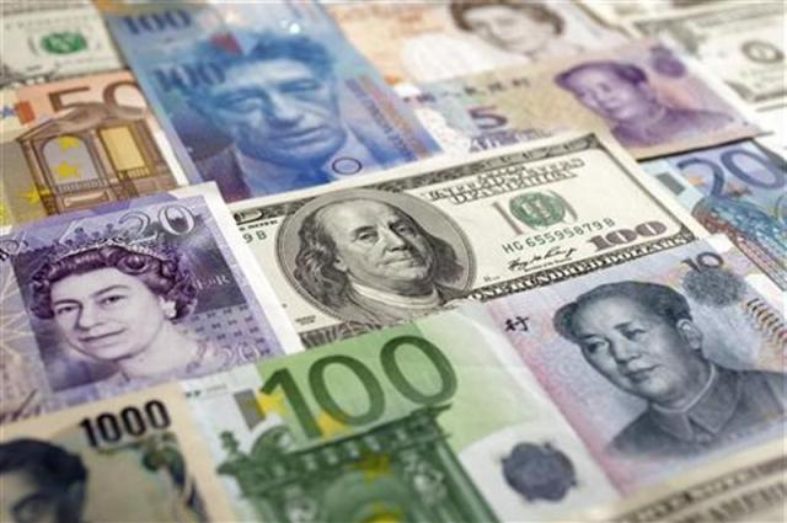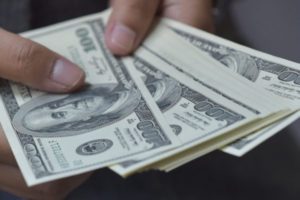Currencies are crashing across the world. “In today’s world, almost everyone is aspiring to export-led growth; a deliberate attempt to lower the currency is indeed currency warfare,” wrote analysts at Oxford Economics. China is not alone in this. But by engaging in the administrative depreciation, china has risked setting off the wider currency wars that have so far been avoided. The Brazilian currency real has lost 28% against the dollar just this year. The Turkish currency lira 20%, Colombian currency peso 23% and the Indonesian currency rupiah is down 11% versus the dollar in 2015.
The most common currency for international reserves is US dollar, for good reason. First, because of the size of the economy, there are huge amount of dollar-denominated securities available. The market for United States Treasury securities is liquid and deep. Liquid means that the securities that can be sold quickly and Deep means that a substantial amount can be sold or bought without affecting the price too much. These are desirable features of a foreign reserve currency. If country like Ruritania were to hold an obscure currency, such as the Pa’anga of the Kingdom of Tonga, it might not find willing buyers on short period of notice. Even if it did, there is no way that Ruritania could quickly sell billions of Pa’anga without pushing the foreign exchange rate disastrously low. Thus Ruritania needs to own currencies of large and powerful countries, which are traded in a large amount on a daily basis. The dollar fits the need pretty well. The Euro plays second fiddle, with Japanese Yen & British pounds sterling just barely in the band.
An additional requirement for a good reserve currency is that it assets denominated in that currency is unlikely to lose value to a serious extent. Here is the tricky point. If defaults or credit downgrades were widely expected to reduce the price of United States. Treasury securities, then other countries would prefer to hold their reserves in some other asset. The challenge for countries nervous about the US dollar is this: what other currency is a good alternative?
One of the popular reserve currency is Euro. Before criticizing the US fiscal situation thinks about Europe. Most of the countries in the Eurozone remain in denial about their under tax collection and overspending .economic growth prospects are middling at best. However, the Euro is widely used over, so financial markets are deep and liquid. I could see the Euro take a little bit more market share of reserve currencies.
The British pound sterling is the next most common reserve currency after euro. The size of the British economy justifies the pound’s third-place status. In case a single small country needed to support its currency, then pounds would do the trick. If, however, an entire region was in trouble, then the market for sterling-denominated assets would not be deep enough.
The Japan’s currency yen is also used in reserves, but Japan’s public debt as a percentage of gross domestic product is the highest in the world, edging out Zimbabwe and Greece. One would not opt for the yen over the dollar based on fiscal soundness. The official currency of china renminbi is sometimes discussed as a possible secured currency, due to large economy part of China. However, the heavy hand of government foreign exchange controls makes most other countries hesitant to use China’s currency.
Roger Bootle, The managing director of Capital Economics in London, says that Europe has stumbled by trying to fight the last war — against inflation — rather than recognizing the imminent dangers of deflation, and he expects that euro zone will have trouble economically hanging together. Some of the other countries have also taken risk, some dangerous measures to clean up problems left over from the 2008 global financial crisis. That’s meant ballooning levels of debt in Japan, Europe and China, even though debt was blamed for the original crisis.”
A lot of concerns are about today stem back to effort taken following the 2008 global financial crisis. That’s when in the United States, at least the Federal Reserve responded by eventually purchasing trillions of dollars of government bonds, thereby pushing money into the banking sector. The program is widely, though not invariably, credited with helping to stabilize the inflation rate, push up the stock market, and support the economy adequate to bring down unemployment and plant the seeds of recovery. Unfortunately, the rest of worlds are struggling to rev up their own economic engines.
This is a guest post from Edna Jonas, an essay writing expert having 10 years of experience. She is working for the Essay writing service Company. They always helps the students for their academic works like essay writing, term paper writing, dissertation writing etc.



